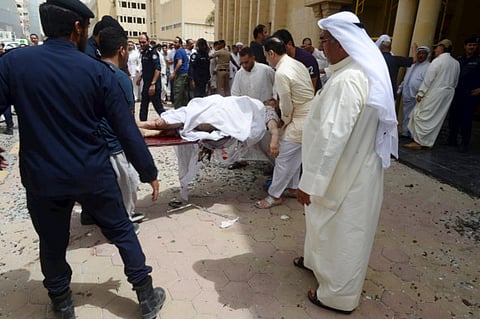Terrorists’ rehab could backfire
Efforts to revise religious teachings are important, but preaching to those who have already adopted violence is futile

Tunisia has rightly decided to close down 80 mosques in the aftermath of terrorist attacks on two hotels on Friday that left 38 tourists dead. That day, terrorists linked to Al Qaida or Daesh (the self-proclaimed Islamic State of Iraq and the Levant) bombed a mosque in Kuwait, killing 27 people and wounding at least 200. And around the same time, a terrorist in France beheaded his employer and attempted to burn down a chemical factory. Somalia’s Al Shabab and Nigeria’s Boko Haram launched similar attacks in their respective countries. All this coincided with Daesh terrorists killing villagers in north-eastern Syria. The Tunisian decision to close down the mosques was justified as these mosques “preached religious hatred and encouraged terrorism”. In fact many more mosques all around the Muslim world need to be closed or brought under state control. Such mosques are no longer places of prayer, which is their main function, but a breeding ground for extremists and potential terrorists recruited by Daesh or Al Qaida-linked groups.
These groups’ advances in Syria may be good news to those who want an end to Syrian President Bashar Al Assad’s regime in Damascus. But, it may not be so for Syria and the region or even the world. Many in the region are in a state of denial, blaming the rise of terror groups on others. This is invalidated by recent developments. Those in denial mode are trying to face Islamophobia of the West, but are also effectively helping to whitewash terrorism. Doha hosts Taliban negotiations with Afghan government; meetings in Turkey brought together almost Al Qaida-linked and other militant groups fighting in Syria; the United Nations is trying hard to instal a “unity government” in Libya that will include militants; and, finally, pressure is mounting on Egypt to integrate “Islamists” in power. Conspiracy theories that those terrorists — or political Islamists, call them what you will, for they are all the same — are just cronies of the West, Zionists or Iranian agents look silly now. Actually, regional players are using these militant/terrorist groups in one way or another to counter an anticipated rising Iranian influence or for other political interests. Iran is taking advantage of this and presenting itself as the regional power fighting terrorism alongside America and the West.
It might be true that America, or the West, ‘used’ these groups to advance its interests, but that doesn’t mean they ‘created’ them. Militants developed from groups advocating ‘political Islam’ with different degrees of extremism that reached the current peak of the brutal Daesh. Many voices are now calling for other approaches to combat terrorism, meaning dialogue or a sort of containment and not only use of force. One might wonder how it would be possible to reason with suicide bombers or die-hard terrorists who attack civilians and behead journalists. Yet, it may be plausible to argue that many of these young recruits for Al Qaida, Daesh and the likes are brainwashed and victims of disinformation on religion and the world around them. Bringing these youths back into the fold is a tempting idea, but this is not the same as “correction institutions” for criminals. Previous efforts, like munasaha (advising) in Saudi Arabia did not stop the expansion of terrorist groups. Actually, many more thousands have joined such groups in the past few years and recruitment is still active.
Efforts to revise religious teachings in schools and mosques are important, as they target youth not yet radicalised but preaching to those who have already adopted violence is futile. Such terrorists have crossed a line by advocating the killing of Muslims and non-Muslims to advance their deformed political beliefs. It is not religious beliefs, as some religious leaders would call it, that can be corrected; their so-called ‘caliphate’ is only political. Any justification of their practices on religious ground — to rehabilitate the terrorists — is just helping their vile cause. Unfortunately, calls for sending terrorists to ‘rehab’ are not coming only from ‘moderate’ religious leaders, but from politicians, writers and media people sympathetic to political Islam. Some politicians cannot see these terrorists being defeated by force and seek ways to ‘contain’ some of them. But, how can a writer or a journalist call for ‘embracing’ the terrorists and advising them? That is no less than encouraging more recruits to terrorist groups as disinformed youth see that they can get away with it.
The closing down of mosques may be a sensitive issue and it may not be easy to modernise religious teachings in state schools, thereby confronting official religious establishments. Yet, giving in to those calling for rehabilitating terrorists will backfire, encouraging more recruits and complicating our problems.
Dr Ahmad Mustafa is an Abu Dhabi-based journalist.



